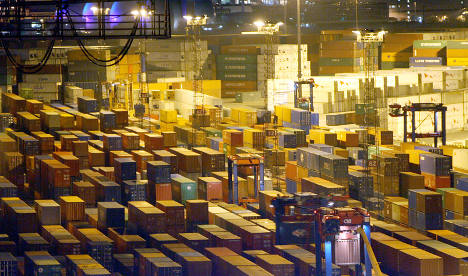The Ifo institute’s business climate index rose to 94.7 points from 93.9 points in November, narrowly beating expectations, the survey of around 7,000 German firms in manufacturing, construction, wholesaling and retail showed.
The result saw the index reach the highest level since July 2008, two months before the collapse of US investment bank Lehman Brothers sent the global financial system close to collapse and the world economy into reverse.
The firms were also more upbeat on the current business situation and on their expectations for the future, the Ifo said.
“After the dramatic economic collapse last winter, these survey results should bring some Christmas cheer,” it said.
Jennifer McKeown from Capital Economics said that the Ifo survey was further evidence that the German economy is continuing to recover, albeit at a “fairly gradual” rate.
The result stood in contrast to recent figures showing that Germany’s recovery from its worst recession since World War II might have eased in the fourth quarter.
Industrial orders, for instance, fell 2.1 percent in October, their first drop in eight months, while output slipped 1.8 percent after two months of solid gains.
The Bundesbank central bank cautioned earlier this month that the latest economic data indicate that the country’s economic recovery was “likely less dynamic” at the start the final quarter of 2009.
Another survey, the ZEW investor sentiment index, fell in December for the third time running.
“December’s modest increase in the German Ifo index comes as a relief after the softer tone of some of the hard data lately,” McKeown said. “Although sentiment is now rising far more modestly than during the summer, the (Ifo) index points to a further sharp slowdown in the annual rate of economic contraction,” McKeown said.
The Bundesbank forecasts that German output will contract by around 4.9 percent this year before growing by 1.6 percent in 2010 and by 1.2 percent in 2011.
The recession has blown a huge hole in public finances, with Chancellor Angela Merkel’s government predicting it will have to take on a record €85.8 billion in new debt in 2010.



 Please whitelist us to continue reading.
Please whitelist us to continue reading.
Member comments